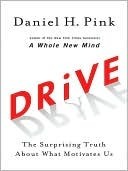More on this book
Community
Kindle Notes & Highlights
Read between
January 9 - January 15, 2024
Chores show kids that families are built on mutual obligations and that family members need to help each other.
Praise effort and strategy, not intelligence.
“Fifty Dangerous Things You Should Let Your Children Do.”
John Taylor Gatto’s extraordinary book, Dumbing Us Down. Check out Mary Griffith’s The Unschooling Handbook and Grace Llewellyn’s The Teenage Liberation Handbook.
Finite and Infinite Games: A Vision of Life as Play and Possibility BY JAMES P. CARSE In
Talent Is Overrated: What Really Separates World-Class Performers from Everybody Else BY GEOFF COLVIN
Flow: The Psychology of Optimal Experience BY MIHALY CSIKSZENTMIHALYI
The best moments usually occur when a person’s body or mind is stretched to the limits in a voluntary effort to accomplish something difficult and worthwhile.”
Mindset: The New Psychology of Success BY CAROL DWECK
Good Work: When Excellence and Ethics Meet BY HOWARD GARDNER, MIHALY CSIKSZENTMIHALYI, AND WILLIAM DAMON
Outliers: The Story of Success BY MALCOLM GLADWELL
High achievers—from young Canadian hockey players to Bill Gates to the Beatles—are often the products of hidden advantages of culture, timing, demographics, and luck that helped them become masters in their fields.
Team of Rivals: The Political Genius of Abraham Lincoln BY DORIS KEARNS GOODWIN
Punished by Rewards: The Trouble with Gold Stars, Incentive Plans, A’s, Praise, and Other Bribes BY ALFIE KOHN
The War of Art: Break Through the Blocks and Win Your Inner Creative Battles BY STEVEN PRESSFIELD
The Seven-Day Weekend,
The Talent Code by Daniel Coyle; Encore by Marc Freedman; Rework by Jason Fried and David Heinemeier Hansson; Linchpin by Seth Godin; Just Listen by Mark Goulston; Switch by Chip Heath and Dan Heath; Delivering Happiness by Tony Hsieh; Teach Like a Champion by Doug Lemov; Mastery by George Leonard; Employees First, Customers Second by Vineet Nayar; How Full Is Your Bucket? by Tom Rath and Donald O. Clifton; Wellbeing by Tom Rath and Jim Harter; Learned Optimism by Martin E. P. Seligman; Do More Great Work by Michael Bungay Stanier; Start with Why by Simon Sinek; The Motivated Student by Bob
...more
Focusing on steadily improving quality is more effective and more efficient than constantly wringing out costs.
Built to Last (with Jerry Porras), Good to Great, and, most recently, How the Mighty Fall.
The real question then becomes: How do you manage in such a way as not to de-motivate people?”
1. “Lead with questions, not answers.” 2. “Engage in dialogue and debate, not coercion.” 3. “Conduct autopsies, without blame.” 4. “Build ‘red flag’ mechanisms.” In other words, make it easy for employees and customers to speak up when they identify a problem.
“People at all levels stop doing any activity that is a waste of their time, the customer’s time, or their company’s time.” “Employees have the freedom to work any way they want.” “Every meeting is optional.” “There are no work schedules.” More Info: You can learn more about ROWE at their website: www.culturerx.com.
Hamel’s The Future of Management
FedEx Days: Created by the Australian software company Atlassian, these one-day bursts of autonomy allow employees to tackle any problem they want—and then show the results to the rest of the company at the end of twenty-four hours.
Sawyer Effect: A weird behavioral alchemy inspired by the scene in The Adventures of Tom Sawyer in which Tom and friends whitewash Aunt Polly’s fence. This effect has two aspects. The negative: Rewards can turn play into work. The positive: Focusing on mastery can turn work into play.
What are the things that truly motivate you? Now think about the last week. How many of those 168 hours were devoted to these things? Can you do better?


